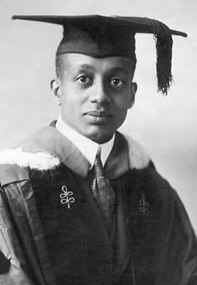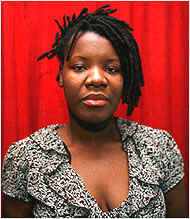The Rodney King statement, "Can't we all just get along?", can morph into "Let's get along!" This is a more definite statement. It's not a question but a command to human beings to consider getting along with his or her fellow human.
[February 3, 2010, Fort Lauderdale, FL] This morning, in a conversation with my father (90), I conceived this article. He told me that when he was a child, let's say 10, a boy ran into him with his bicycle, an action that left a memory within my father of the evidence that human beings could not get along with each other for various reasons. He indicated that it wasn't just color, race or creed that put them in conflict with each other, but place of origin. He said the kids from the Bahamas, Florida, Georgia, Tennessee, and the Carolinas didn't get along with each other and he still wonders why it is this way, even today.
Tea party protesters use racial epithet against Georgia's John Lewis
By William Douglas, McClatchy Newspapers, Sat, March 20, 2010
WASHINGTON — Demonstrators outside the U.S. Capitol, angry over the proposed health care bill, shouted "nigger" Saturday at U.S. Rep. John Lewis, a Georgia congressman and civil rights icon who was nearly beaten to death during an Alabama march in the 1960s.
The protesters also shouted obscenities at other members of the Congressional Black Caucus, lawmakers said.
"They were shouting, sort of harassing," Lewis said. "But, it's okay, I've faced this before. It reminded me of the 60s. It was a lot of downright hate and anger and people being downright mean."
Lewis said he was leaving the Cannon office building across from the Capitol when protesters shouted "Kill the bill, kill the bill," Lewis said.
"I said 'I'm for the bill, I support the bill, I'm voting for the bill'," Lewis said.
A colleague who was accompanying Lewis said people in the crowd responded by saying "Kill the bill, then the n-word."
"It surprised me that people are so mean and we can't engage in a civil dialogue and debate," Lewis said.
Rep. Emanuel Cleaver , D- Mo. , said he was a few yards behind Lewis and distinctly heard "nigger."
"It was a chorus," Cleaver said. "In a way, I feel sorry for those people who are doing this nasty stuff - they're being whipped up. I decided I wouldn't be angry with any of them."
Protestors also used a slur as they confronted Rep. Barney Frank , D- Mass. , an openly gay member of Congress . A writer for Huffington Post said the crowd called Frank a "faggot."
Frank told the Boston Globe that the incident happened as he was walking from the Longworth office building to the Rayburn office building, both a short distance from the Capitol. Frank said the crowd consisted of a couple of hundred of people and that they referred to him as 'homo.'
"I'm disappointed with the unwillingness to be civil," Frank told the Globe. "I was, I guess, surprised by the rancor. What it means is obviously the health care bill is proxy for a lot of other sentiments, some of which are perfectly reasonable, but some of which are not."
"People out there today, on the whole, were really hateful," Frank said. "The leaders of this movement have a responsibility to speak out more."
Thousands of demonstrators gathered outside the Capitol on Saturday as the House Democratic leadership worked to gather enough votes to enact a health care overhaul proposal that has become the centerpiece of President Barack Obama's domestic agenda. Most were affiliated with so-called tea party organizations that originally sprang up during last summer's protests of the health care proposals.
Heated debate has surrounded what role race plays in the motivations of the tea party demonstrators. During protests last summer, demonstrators displayed a poster depicting Obama as an African witch doctor complete with headdress, above the words "OBAMACARE coming to a clinic near you." Former President Jimmy Carter asserted in September that racism was a major factor behind the hostility that Obama's proposals had faced.
The claim brought angry rebuttals from Republicans. On Saturday, Frank, however, said he was sorry Republican leaders didn't do more to disown the protesters. Some Republicans "think they are benefiting from this rancor," he said.
House Majority Whip James Clyburn, D- S.C., said Saturday's ugliness underscored for him that the health care overhaul isn't the only motivation for many protesters.
"I heard people saying things today I've not heard since March 15th, 1960 , when I was marching to try and get off the back of the bus," Clyburn said. "This is incredible, shocking to me."
He added, "A lot of us have said for a long time that none of this is about healthcare at all. It's about extending a basic fundamental right to people who are less powerful."
(James Rosen contributed to this story.)
MORE FROM MCCLATCHY
- There's no denying Obama's race plays a role in protests
- Confident Dems now will vote directly on Senate health bill
- Tea Party protesters target lawmaker who agrees with them
For more McClatchy politics coverage visit Planet Washington
Copyright © 2010 Yahoo! Inc. All rights reserved.
Karen L. Anderson, in her article "To The Keepers of the Hearth and Flame" from Life Compass for Women, says it is Esteem that dictates how a relationship will go. "Esteem is how we value ourselves and others," Karen says. She lists six H's of Communication:
-
Hunger: Until someone is hungry to know or learn, save your words.
-
Here: Concentrate on the present because most of us are too busy to visit the past or the future.
-
Honor: Maintain dignity for you and for your relationship partner.
-
Heart: Show empathy and compassion. Offer words and deeds that heal rather than harm.
-
Hope: Encouraging statements and goodwill gestures reflect possibilities for positive change.
-
Humor: Smile and laugh to break the tensions in life and keep a positive perspective.
Karen's website is www.acts-ionsolutions.com
 Scholar,
Author, Full Philosophy Professor @ Howard
Scholar,
Author, Full Philosophy Professor @ Howard
By Leshell Hatley in Education, Philosophy, Scholarly Celebrations
The preeminent African American intellectual of his generation, Alain Locke was a professor of philosophy and the leading promoter and interpreter of the artistic and cultural contributions of African Americans to American life. More than anyone else, he familiarized white Americans with the Harlem Renaissance of the 1920s, while encouraging African American authors to set high artistic standards in their depiction of life. As a professor of philosophy, he expounded his theory of “cultural pluralism†that valued the uniqueness of different styles and values available within a democratic society. More than anyone else, he familiarized white Americans with the Harlem Renaissance of the 1920s, while encouraging African American authors to set high artistic standards in their depiction of life. (Continue. . . )
 [Ãngel Franco/The New York Times]
[Ãngel Franco/The New York Times]
After a week of watching news coverage of the Haiti earthquake, Nadege Fleurimond, a Haitian-American event planner in New York, fired off an e-mail message to about three dozen friends and associates. Though she was moved by the outpouring of help from local Haitians, she was frustrated that the effort had not coalesced into something larger and more visible.
“We succeed as individuals, not so much as a community,†said Nadege Fleurimond, a Haitian who immigrated to New York when she was 7 and graduated from Columbia University. (Continue. . .)
Haitians in America: A Shifting Population
“No major press conferences, no major vigils, no major anything with a statement,†she wrote. “Nothing being written about us besides the fact that we were sad and shocked.â€
The problem, she suggested, was that Haitians, for all their history and achievements in New York, had not emerged as a discernible entity, with prominent leaders, a united presence, a public face.
The e-mail provoked a spirited debate in Ms. Fleurimond’s circle. And as the initial shock of the earthquake begins to fade, the disaster has touched off similar discussions among Haitians all over New York.
| Does
this woman watch CNN?
Every time I turn it on, there's the relief effort in Haiti. Is it that she's looking at what's not happening, instead of what is happening? |
There needs to be an open dialogue between Americans, African-Americans in particular, Haitians and Haitian-Americans about their relationship, especially in light of the recent disaster in Haiti and the influx of thousands of Haitians into the United States, the State of Florida, in particular.
Are you interested? Join this network and let's begin the dialogue until it spills out into the public forum: www.americaisforusall.ning.com

|
Village Dialogue Friday, Feb. 19, 1:00-4:00 pm Stephen P. Clark Center Thursday, February 18, 2010 From: Gene Tinnie To: Joan Cartwright |
|
I'll be sure to keep you in the loop. This is the kind of thing that could be just an exercise, but I am really hoping -- and giving some serious thought to a strategy -- to make this something more of a permanent network, so this discussion can continue, in action, as a way of life. We have, from what I can see, three main challenges: 1) There is a lack of understanding, sometimes even a lack of respect, to put it bluntly, on the part of many immigrant African descendants toward the "host community" of African Americans whose roots are in this country, and vice-versa; 2) There is the separation that people from different islands feel, so that Jamaicans might not attend a Trinidadian event, for example; and 3) The language problem, which might isolate Haitians or Black Cubans and Puerto Ricans, for example, from English speakers, and sometimes English speakers from one another, because of dialectal differences. It is remarkable that Marcus Garvey seems to have overcome the last two of these with great success, and made some inroads with the first one, which shows what a common sense of purpose and destiny can accomplish. Garvey's main problem, as best as I can guess, from limited knowledge, was that he believed too strongly in his organization and his people, and was therefore too trusting, not recognizing that there were many whom the organization elevated to positions of respect that they had never known before, but who were still just street hustlers and pimp types who exploited the strength of the movement for their personal advantage. As we go forward with cultivating a pan African consciousness, we need to be mindful of these lessons from the past, so as to be inspired by the achievements and forewarned by the mistakes. We are working in a different time, place and circumstance, but the wisdom of drawing strength and direction from our common experience and common destiny remains as clear as ever. The greatest strength of this wisdom lies in the fact that whenever we have acted accordingly, any and all social demands that were pressed and satisfied have always benefited all people and not just Black folk. We truly do have the assignment of being the ones to bring sanity to an insane situation, with all of its telltale symptoms of fear, greed, economic disparity, violence , etc. This is why whatever happens at this "Village Dialogue" tomorrow needs to be a continuation of our best efforts in he past, and the beginning of our best efforts in the future. This sounds like I might have just written my opening speech! Thanks for sharing your interest; this is encouragement in itself. We might legitimately ask, What's up with holding it at this time of day during the week.
Best all ways,
|




